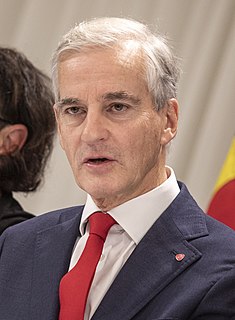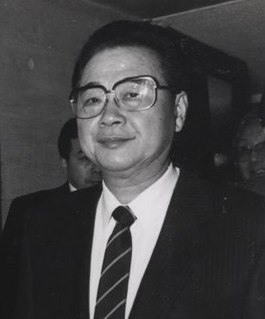A Quote by Federica Mogherini
The European Union will continue to fully support multilateral global governance based on international law, human rights, and strong international institutions.
Related Quotes
If globalization is to realise its potential as a force for good, we have to look more closely at the means by which we handle our growing interdependence. We do not have a world government, but we do have an increasingly complex network of institutions that are concerned with global governance. They are central to our future and international human rights law
US law and international human rights law have radically diverged in the past years in terms of the recognition of indigenous people's rights. International human rights law now looks at not whether or not the tribes have formal ownership or legal title in a Western legal conception might have it, but rather they look at the tribe's historical connection to that land.
Human rights and international criminal law both illustrate the contradictory potential of international law. On one level, the imposition of human rights norms is a restraint on interventionary diplomacy, especially if coupled with respect for the legal norm of self-determination. But on another level, the protection of human rights creates a pretext for intervention as given approval by the UN Security Council in the form of the R2P (responsibility to protect) norm, as used in the 2011 Libyan intervention. The same applies with international criminal accountability.
Migration is an opportunity, not a problem. And in the sense that it is an opportunity, it goes on to a bilateral agreement, between Mexico and the US, the US and the Dominican Republic, whatever you wish, and it has to be a multilateral, international event. I am in favor of an international union of migrant workers that really takes on the problems that affect Europe, with the migrants coming from Africa, and the US with the migrants coming from Latin America. It has to be considered an international question, with international solutions, and with no problems national or international.
The international human rights framework is a vital component and engine for promoting global values. Governments have signed up to this international legal framework and we should hold them accountable, in all circumstances from environmental or labour standards, to trade talks, arms control and security issues as well as other international legal codes.
The core of human rights work is naming and shaming those who commit abuses, and pressuring governments to put the screws to abusing states. As a result, human rights conventions are unique among international law instruments in depending for their enforcement mostly on the activism of a global civil society movement.
The idea of self-determination was gradually given credibility by international law, and it lent strong emancipatory support to movements of liberation struggling against a West-centric world order. Latin American countries used international law creatively, both to limit the protection of foreign investment by establishing the primacy of national sovereignty in relation to natural resources, and by building support for the norm on non-intervention in internal affairs.






























